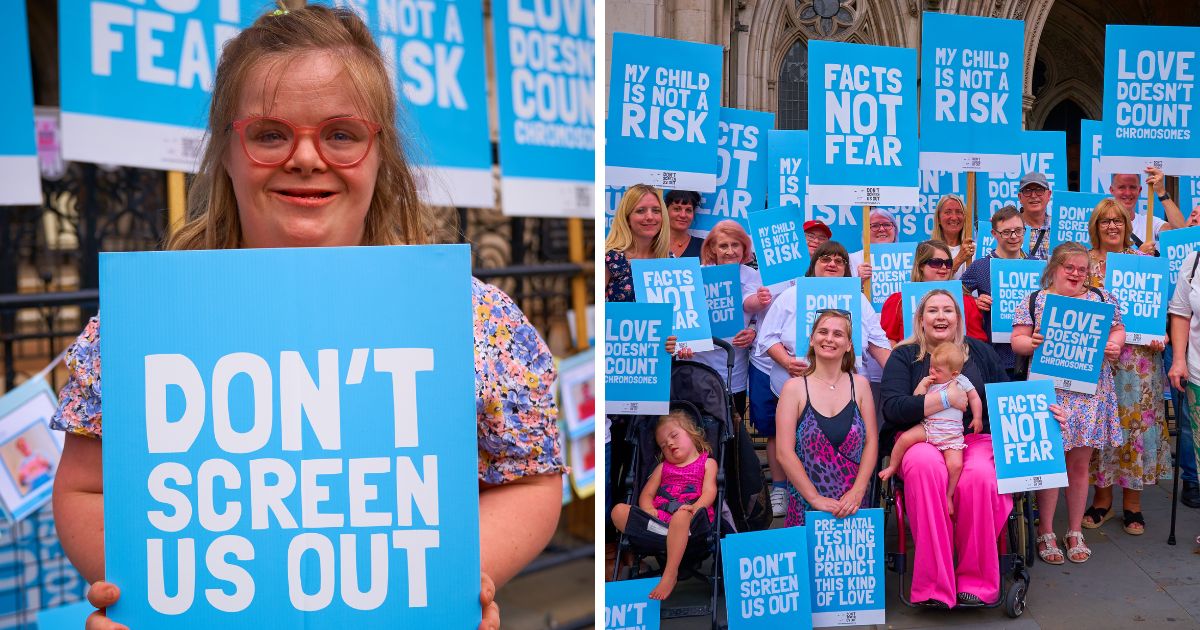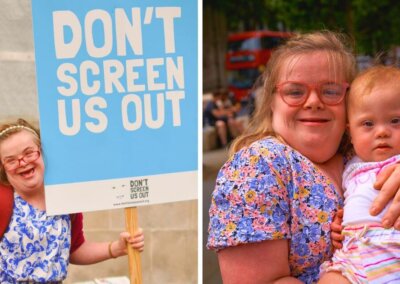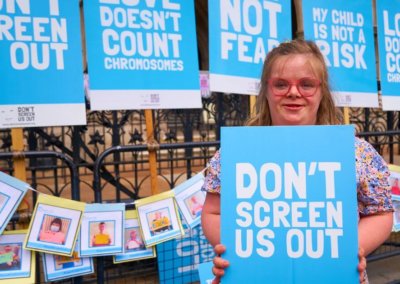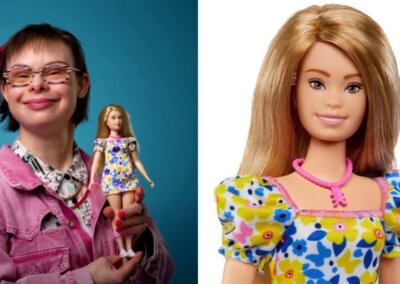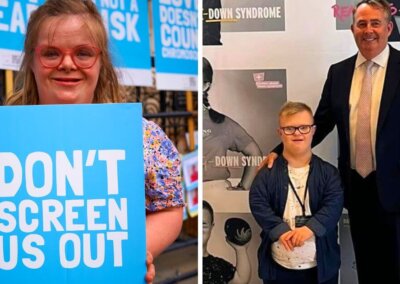A challenge to the discriminatory abortion law in the UK that permits abortion up to birth in cases where the baby is thought to have a disability has been rejected by the Court of Appeal.
Earlier today, the Court of Appeal released its judgement that the UK abortion law was not discriminatory against people with disabilities and people with Down’s syndrome in particular.
Heidi Crowter, a 27-year-old woman from Coventry who has Down’s syndrome, had challenged the UK Government over a disability clause in the current law that allows abortion up to birth in those cases where it is thought the baby is disabled.
Together with Maire Lea-Wilson, the mother of Aidan, a young boy who has Down’s syndrome, Heidi argued that the abortion law was incompatible with the European Convention on Human Rights.
“No doubt many other seriously disabled people, genuinely perceive [disability abortion as discriminatory]”
However, the judge, Lord Justice Underhill, said in his judgement that the disability clause in the Abortion Act 1967 does not play “any significant role in causing discriminatory attitudes against disabled people generally, or those with Down’s in particular.”
“I accept that the Appellants, and no doubt many other seriously disabled people, genuinely perceive that section 1 (1) (d) [the disability clause] sends such a [discriminatory] message; and from their perspective I find that perception understandable.”
However, the Judge found that from another perspective, abortion up to birth on the grounds of disability does not imply anything about the value of the lives of individuals with disabilities.
In a summary of the decision, the judges said “The court recognises that many people with Down’s syndrome and other disabilities will be upset and offended by the fact that a diagnosis of serious disability during pregnancy is treated by the law as a justification for termination, and that they may regard it as implying that their own lives are of lesser value.”
“But it holds that a perception that is what the law implies is not by itself enough to give rise to an interference with Article 8 rights (to private and family life, enshrined in the European Convention on Human Rights).”
The judgements adds the the “stigmatisation” of people with Down’s Syndrome
Paul Conrathe, the claimant’s solicitor from Sinclairslaw, said “This judgement is disappointing and perplexing. Rather than affirming the equal value of those with disabilities, it further adds to the stigmatisation they suffer. This is for the simple reason that the court concluded that the perceptions of people with disabilities about a law which allows the ending of a life because of disability are irrelevant.”
“Yet the law protects the unborn without disabilities, leading to the understandable perception that disabled lives are of lesser value or no value at all. Despite this obvious discrimination the court concluded that other people – including people who are not disabled – had a different view of the implications of this legislation and the perceptions and feelings of the disabled could not be relied upon to establish an interference with their human rights.”
“By failing to give legal recognition to the suffering and stigmatisation that people with disabilities feel about a law which singles them out for termination in the womb the Court has further diminished a fragile voice for equal value.”
Shortly after the decision was announced, Heidi told a rally outside the Court “This law was made in 1967 when we were not even allowed to go to school because of our extra chromosome, so I think it’s time that the judges move with the times and actually meet people with Down’s syndrome and see the people behind the chromosome.”
Along with her legal team, Heidi is now considering seeking permission for the case to be taken on to the Supreme Court.
Abortion up to birth if the baby has Down’s syndrome
Currently in England, Wales and Scotland, there is a general 24-week time limit for abortion, but if the baby has a disability, including Down’s syndrome, cleft lip and club foot, abortion is legal right up to birth.
There were 3,370 disability-selective abortions in 2021. The number of late-term abortions at 24 weeks gestation or over where the baby has a disability increased by 20% from 229 to 274.
The statistics showed there were 859 abortions where a baby had Down’s syndrome in 2021, an increase of 24% from 2020. The statistics also show a 71% increase in late-term abortions at 24 weeks gestation or over where the baby had Down’s syndrome, increasing from 14 in 2020 to 24 in 2021.
Right To Life UK spokesperson Catherine Robinson said “This is a great disappointment for people with Down’s syndrome and disabilities in general. The law clearly discriminates against people with Down’s syndrome and does not provide the same protections that other unborn babies have. Hopefully, Heidi and her team will have more success if they decide to take this case to the Supreme Court.”


